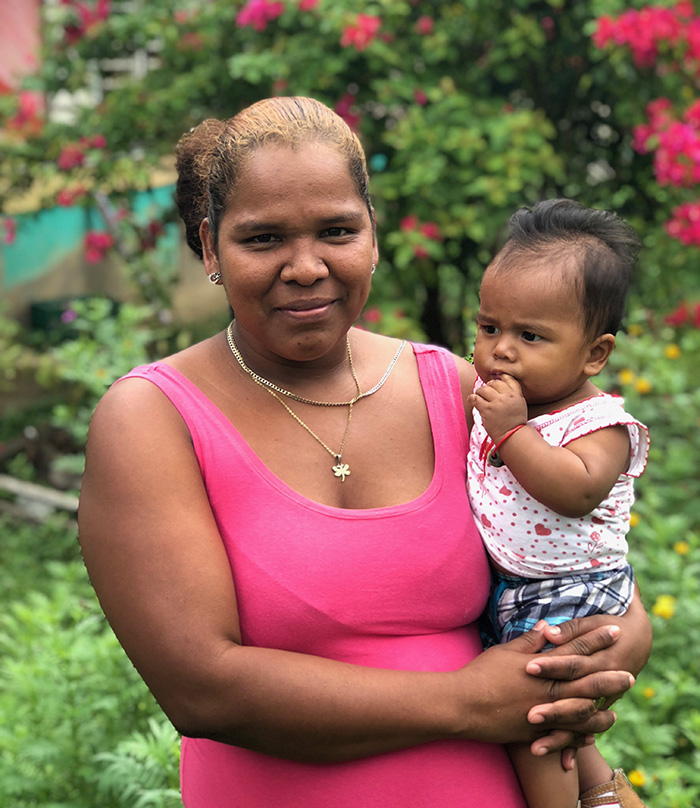Stories of Change

Evaly and her daughter, Kati.
In this phase of our Rio Coco program, 1,370 people will benefit directly from program activities. More than 10,000 people will benefit indirectly.
Supporting the next generation in Nicaragua
CWS has been working to end hunger along the Rio Coco on Nicaragua’s border with Honduras for years. This program unfolds in phases, as our team and partners recalibrate our efforts every couple of years to make sure we continue to implement activities that are effective and in line with community needs.
The most recent phase of our work – titled “Children Flourishing in Safe and Food Secure Communities” began in May and focuses on nutrition for young children and their mothers. More than 1,300 people live in the indigenous Miskito and Mayagna communities that are participating in the program.
The first 1,000 days of a child’s life – from conception until her second birthday – are a critical time for nutrition. With your support, we’re hard at work supporting moms here along the Rio Coco to help them nourish their children.
The most vital component of many CWS programs is information sharing aimed at behavior change, and this one is no exception. One of the first community information sessions that was held in the town of San Carlos after this phase of the program began focused on the importance of breastfeeding. As one of the moms, Evaly, told us, breastfeeding is logistically challenging for working moms in the region. She told our team that moms here often begin to introduce solid food at about three to six months. “The reason why we do that is because a lot of us have to leave our children with our neighbors while we go to work in our fields, which are often far away from where the community is. That means that our neighbors aren’t able to give them breast milk, so they will give them things like a mashed potato or a little suet or something like that. We’re learning through this program that that doesn’t have all the same benefits,” she said.
Armed with information on the importance of breastfeeding, Evaly and other moms have begun to make changes. Another woman from San Carlos shared that she stopped giving her daughter solid food and is now breastfeeding. Several moms told our team that they feel that they can better nourish their children given what they have learned about nutrition. A community health agent who received training through the program shared that an attitude shift is underway here. Families with young children and expectant mothers are more excited to hear the information she has to share, and they even actively seek out her advice.
The program, though, goes well beyond information sharing. The other community session that has been hosted in San Carlos so far was on vegetable production. It included information on techniques for planting gardens, marketing strategies for surplus produce and recipes to cook using the vegetables. Moms now report that their children now have a more nutritious diet. Plus, they can sell their surplus for extra income to help meet other needs.
Evaly says that the program has helped her have a better understanding of what to do when your child is malnourished, what food to give them and at what month to start introducing other foods besides breastmilk. She says that she is better able to cook for her daughter, Kati.
You are partnering with moms in Nicaragua to make sure their children have the nutrition they need to grow up healthy and strong. And together we’re just getting started.
